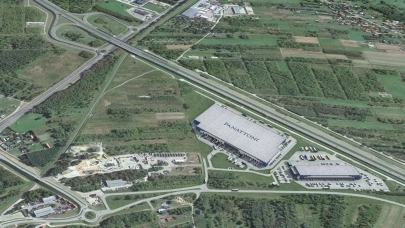
The pace of yield compression decelerated across Europe’s commercial real estate markets in the first quarter of 2019, according to Cushman & Wakefield’s latest DNA of Real Estate report.
Key findings:
- Fewer markets reporting compression in yields, with more reporting a rise
- Positive quarter-on-quarter rental growth in office, retail and logistics
- Rate of rental growth slowing reflecting the mature stage of the property cycle
- Asset management a key driver for delivering stronger returns
During the first quarter, the report showed a modest increase in the number of markets now reporting an increase in yields, providing a clearer sign that we are late in the investment cycle. A total of seven city sectors reported an increase in yields this quarter, compared to just five in Q4, with far fewer markets reporting a fall – 16 in Q1 versus 44 in Q4. Most increases in Q1 were in the retail sector where the average prime European retail yield rose 2bps to 4.20%.
Yields in both offices and logistics continued to compress, albeit at a weaker pace compared to previous quarters on both a quarterly and annual basis. Office yields shrank 1bp to 4.35% (14bps lower year-on-year) with logistics yields just 4bps lower at 5.68% - this compared a 20bp fall in Q4, though remain 42bps lower year-on-year. This fall underscores the continued demand for logistics assets with investors competing for the best assets.
Nigel Almond, Head of Data Analytics at Cushman & Wakefield, commented: “Yield compression over the quarter was mainly limited to the office and logistics sectors and predominantly across semi-core markets - notably Italy and Spain and CEE markets such as the Czech Republic and Poland.
“Few markets registered an increase in yields. Moscow saw both retail and office yields rise 25bps, partly driven by a rise in the Central Banks key rate at the end of last year, but also on the back of weaker investment demand and the devaluation of the rouble.”
Whilst investment markets appear to be a late cycle, we continue to see positive developments in leasing market conditions with average prime European rents increasing on a quarterly basis across all property types – led by offices at 0.7%, and logistics (0.5%) and retail (0.3%). Growth remained positive for both offices (+3%) and logistics (+2.6%) on an annual basis, although retail rents continued to slip (-0.4%) year on year.
In the office sector, most core European markets saw limited growth over the quarter with barely any growth recorded in the UK, France, Benelux and Nordic markets. Germany was the exception where the weighted average prime rental growth in leading cities was up 2.6%, led by a 6.1% rise in Berlin and 2.4% in Frankfurt supported by strong underlying demand. Low vacancy and strong demand continue to support rental growth in Berlin with rents nearly 14.8% higher year-on-year.
Retail rents once again turned positive, although this was limited to a handful of markets, with Lyon leading the way with Zone A rents 12% higher at €2,800 sqm/pa, where along with other French markets retailer confidence has improved. Italy continues to benefit stronger demand from luxury brands with rents in Rome up 4.2% to €12,500 sqm/pa. Bucharest (+6.4% to €50 sqm/m) was the other main beneficiary supported by limited new supply.
Almond concluded: “The outlook for rents remains broadly positive, albeit the rate of growth is expected to slow with fewer markets now expecting rents to be higher by year end compared to the position in Q4. High rents are expected to curtail demand in many of the best locations reflecting the mature stage of the property market cycle, although we do expect to see healthier growth in more supply-constrained markets.
“The impact of e-commerce continues to be reflected by a downgrade to retail rental growth in Europe. With rental appreciation factored into pricing across most sectors we see limited yield compression moving forward with asset management a key driver for delivering stronger returns.”
Soren Rodian Olsen, Head of Capital Markets Poland, Cushman & Wakefield, added: „The CEE Region continues to record modest rental growth, in particular at net effective level in selective regions for offices and logistics. The yield compression for offices and logistics across key markets in Europe is replicated in CEE which even bucks the trend in regard to Retail with expected compression to continue for the very best schemes.”




